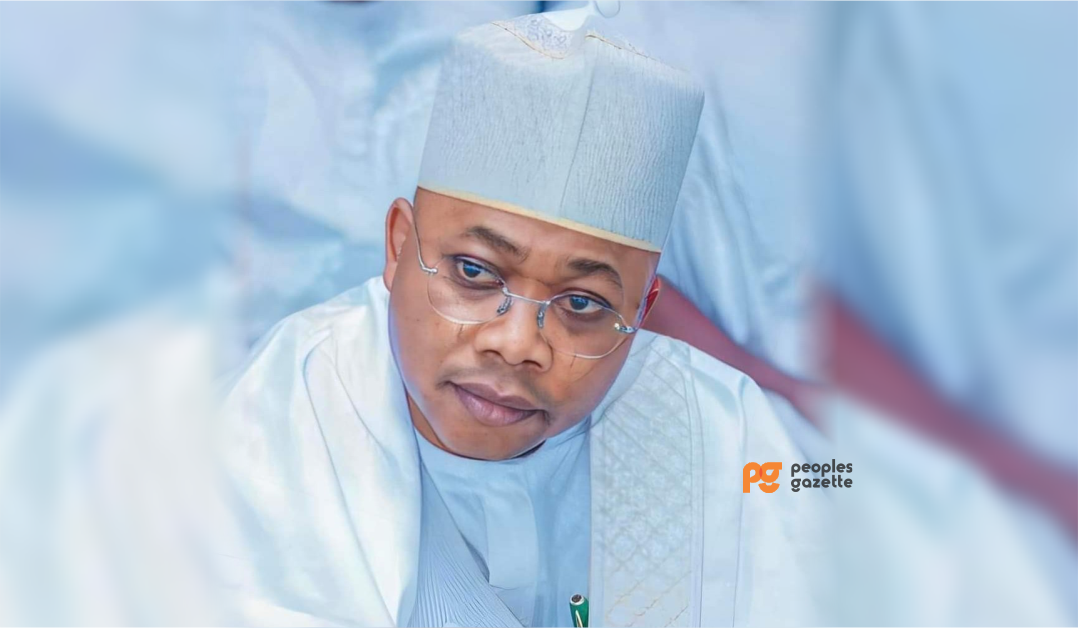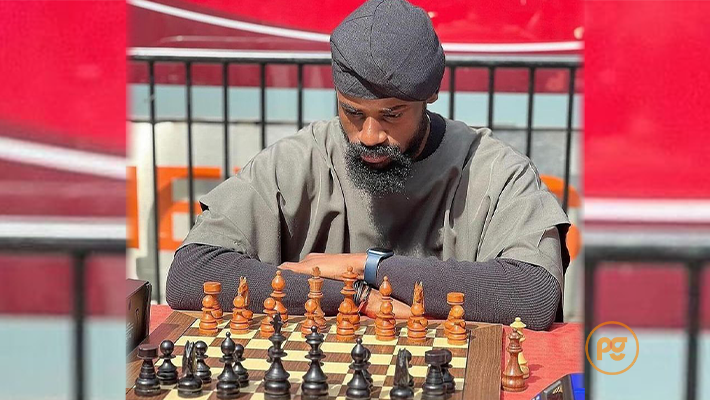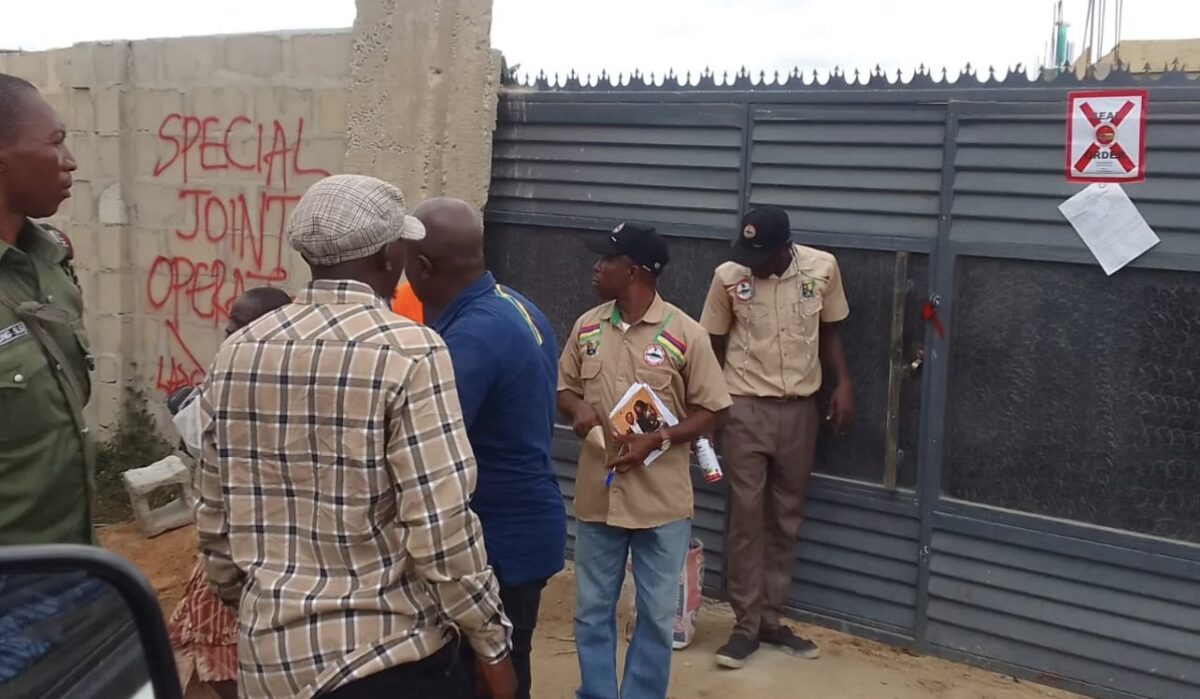Experts discuss Nigeria’s response to COVID-19 pandemic in online conference

A panel of experts has taken a critical look at Nigeria’s response to the Covid-19 pandemic and the preparedness of the country for any future outbreak.
The conference, which was hosted by Nigerian journalist Rudolf Okonkwo penultimate Saturday, featured the former National Coordinator of the Presidential Steering Committee on COVID-19 (PTF), Dr Sani Aliyu, his successor Dr Mukhtar Muhammed and a host of other distinguished medical experts and media persons both at home and in the diaspora, as guests.
A holistic assessment of the country’s response to the pandemic was undertaken, and important areas of possible improvement were noted.
According to Mr Aliyu, 5.4m persons have undergone the Covid-19 test in Nigeria, out of which about 261,000 were confirmed positive, and that about 3,000 deaths were unfortunately recorded. He explained that one unique feature of the Nigeria COVID-19 epidemic is the high mortality rate in certain age groups.
“If you look at the case fatality rate for people between age 51 to 60, it was about 6.5%. In fact, if you are above the age of 60, you have a 1 in 7 chance of dying if you catch COVID-19. That’s significantly more than what we see in other parts of the world. Also, about 25 million Nigerians have been vaccinated as well. This is only about 12% of our population. So we still have a long way to go”, Mr Aliyu said.
“You cannot get on top of COVID without sorting out your vaccination arrangement. We need to get Nigerians vaccinated. It is the only way we can get on top of this. Yes, there are variants emerging that can overwhelm the system, but the presentation of illness in vaccinated people is very different. The approach is to make COVID a mild illness and that can only be achieved through vaccination. We need to get our economies working again. Lockdown is no longer an option neither is isolating people”, he said further.
On testing, the former PTF boss said though the numbers are still grossly inadequate, but the capacity is being increased by the effective deployment of the rapid testing kits. Mr Aliyu also noted that during the period he was at the PTF that they were able to expand clinical care facilities in our hospitals by “doubling the amount of ICU beds, distributing over 200 ventilators and more than 4,000 oxygen delivering equipment”.
On the training of healthcare workers, he said: “Over 20,000 healthcare workers in Nigeria were trained on infection prevention and control. We also trained over 62,000 persons on risk communication. We worked closely with the Ministry of Information and Culture and other agencies in charge of mobilisation to mobilise 8,000 community volunteers to sensitise people in the villages about COVID”.
On his part, Mr Muhammed informed the participants that with the experience from Ebola, COVID and Lassa fever, the country now has a clear direction to take in any event of a future pandemic outbreak. He acknowledged the capacity-building initiatives highlighted by his predecessor while reiterating that the training has been intensified. “Many epidemiologists have been trained in all the states of the federation. Not only clinical epidemiologists but other types of health workers have also been trained on the roles they can play in terms of epidemic preparedness and control”, Mr Muhammed noted.
Mr Muhammed also pointed out the development of clinical care facilities across the country in terms of intensive care units and the building of isolation centres. On legal initiatives, he informed the participants that the National Center for Disease Control (NCDC) had been strengthened to give the Center unhindered access to properties in the event of any necessity to take action.
Mukhtar acknowledged the weakness of data collection in the healthcare system in the country but said a lot of resources had been invested in improving the data collection efforts.
Another panelist Prof. Benjamin Nwosu, who is the Chief Endocrinologist at the Cohen Children’s Medical Center in New York, while making his presentation raised questions on Nigeria’s readiness for any future pandemic outbreak. He talked about lack of funds, lack of proper integration of the primary, secondary and tertiary healthcare systems, derelict health facilities, and lack of national will as factors that would hamper the country’s preparedness for any future pandemic. Prof. Nwosu also emphasised the need for proper data collection and for studies to be conducted to investigate the unique reasons why the Covid-19 fatality was not so pronounced in the country.
Another panelist Dr John Ndibe, a retired Director of Medical Services in Anambra State, drew attention to the lopsided allocation of resources to the different tiers of health institutions in Nigeria. “Nigeria has a structural problem across all its health interventions. There is a kind of misfit between where the problems are and where the resources are… so you find a situation where even though it is the Primary Health Centers (PHCs) and the General Hospitals that you expect to have most of the patients or solve most of the health problems, but you find out that is the level where the resources are least.
And then, at the federal level, where they should be doing more of policy, you find a lot of resources there. So we have a situation where the base of the needs is down while the base of the resources is up. And this is a kind of misfit”, Mr Ndibe noted. He said this lopsided arrangement made the states dependent on the federal government when it comes to public health issues like the Covid-19 pandemic, which requires a lot of resources. Mr Ndibe, however, commended the PTF for their role in mobilising resources to the states, which would otherwise not have been available to them during the Covid-19 pandemic.
Chiamaka Okafor, a senior reporter for Premium Times, while narrating the experience of the media during the pandemic, called on government officials to work closely with local media organisations to counter fake news and conspiracy theories.
“I think the government does not respect the local media. That is why it’s easy for them to rush to the likes of BBC, Aljazeera and Reuters to talk about things that are happening in Nigeria. But when we who are operating in Nigeria make calls to get information for the audience we serve, we get no response. And we experienced a lot of that in the wake of the COVID-19 pandemic. This is one of the things that gave credence to a lot of the conspiracy theories that were flying around at the time”, the reporter said.
Panelists also raised issues on the need to curb the brain drain of medical personnel, training of personnel on data capture and research, need for clinical trials and screening to be conducted on the Covid-19 drugs and vaccines that are administered to the country’s population, fake vaccination cards etc.
“With the way Nigeria is structured, we are losing quite a bit of our medical professionals. Not just the doctors but even our nurses. And now, with the meagre number that we have left, we need to ask ourselves how many are actually trained for research. How trained and how prepared are our doctors and nurses to participate in research? How do we capture our data? How many hospitals can we attest to their data system – how they capture the data of every patient? Who is a potential subject for a clinical trial? Because it is when we start conducting our own research that we can actually come up with solutions that are in tune with our own demographics. We shouldn’t just take whatever the West brings up and give it to our people. It is important to test the efficacy of the medications on our own populations back home in Africa”, a clinical research professional Ngozi Obinwanne argued.
We have recently deactivated our website's comment provider in favour of other channels of distribution and commentary. We encourage you to join the conversation on our stories via our Facebook, Twitter and other social media pages.
More from Peoples Gazette

Politics
Katsina youths pledge to deliver over 2 million votes to Atiku
“Katsina State is Atiku’s political base because it is his second home.”

NationWide
CSO urges politicians to embrace genuine opposition, stop carpet crossing
Mr Ezenwa said that opposition political parties were meant to be shadow governments, through policy differentiation.

States
Kogi governor seeks FG’s help to tackle insecurity, flooding
Mr Ododo said the menace of insecurity and flooding in Kogi could impact other states bordering it if left unaddressed.

Showbiz
Tinubu hails feat of Nigerian chess master, Tunde Onakoya
The President assured citizens that his administration remained committed to creating and expanding opportunities for the youth.

Politics
Ondo APC accredited voters flee as violence rocks Okitipupa ward
The accredited members scampered for safety as violence broke out.

Lagos
Lagos moves against illegal estate developers in Epe
Mr Olumide said such investors may also risk losing their property or investment to demolition.

States
Ondo APC Primary: Large turnout, security at voting centres in Okitipupa
Mr Ebisanmi said that APC members were ready for the exercise.








